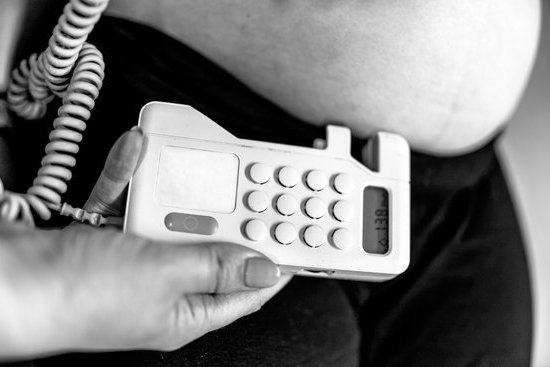Constipation in pregnancy is a common concern for many expectant mothers, often causing discomfort and frustration. Understanding the causes and factors contributing to constipation during pregnancy is crucial in managing this issue. Hormonal changes can have a significant impact on the digestive system, leading to slowed bowel movement and difficulty passing stools. In this section, we will explore the various reasons behind constipation in pregnancy and how it affects expectant mothers.
Pregnant women often experience symptoms such as bloating, discomfort, and infrequent bowel movements, which can be indicative of constipation. It is essential to recognize these signs and differentiate them from normal bowel changes during pregnancy. By understanding the symptoms of constipation, expectant mothers can take proactive steps to alleviate their discomfort and seek appropriate medical guidance if needed.
Untreated constipation during pregnancy can potentially lead to health risks for both the mother and baby. It can affect the overall well-being of the expectant mother, impacting her daily activities and quality of life. Additionally, complications such as hemorrhoids and anal fissures may arise due to prolonged straining during bowel movements. It’s important for pregnant women to be aware of these risks and take measures to manage their condition effectively.
Symptoms of Constipation in Pregnancy
Constipation is a common issue experienced by many pregnant women and can be attributed to various causes and factors. During pregnancy, hormonal changes play a significant role in affecting the digestive system, leading to slower bowel movements and difficulty passing stools. The increasing pressure of the growing uterus on the rectum can also contribute to constipation in pregnancy.
Symptoms of constipation in pregnancy can include:
- Infrequent bowel movements
- Difficulty passing stools
- Straining during bowel movements
- Feeling like the bowels are not completely empty after a bowel movement
- Bloating and discomfort
It is important for pregnant women to differentiate between normal changes in bowel movements during pregnancy and actual constipation. While it is normal for there to be some changes due to hormonal influences, persistent discomfort and irregular bowel movements should be addressed.
Seeking relief from constipation in pregnancy is essential as untreated constipation can lead to potential health risks and complications for both the mother and baby. This includes hemorrhoids, anal fissures, and even an increased risk of developing urinary tract infections. Additionally, when constipation becomes severe, it may also impact the overall well-being of the expectant mother, causing increased stress and discomfort.
As with any concerns related to pregnancy, consulting with healthcare professionals is crucial when experiencing symptoms of constipation. They can provide guidance on safe medical interventions and recommend appropriate medications or supplements that are approved for use during pregnancy. In severe cases of constipation, seeking medical advice ensures that both the mother’s and baby’s health are prioritized while effectively managing the condition.
Risks and Complications
During pregnancy, the body undergoes numerous changes, and these changes can have an impact on the digestive system. One common issue that many pregnant women experience is constipation. Constipation in pregnancy can be caused by a variety of factors including hormonal changes, increased pressure on the intestines from the growing uterus, and prenatal vitamins containing iron.
The hormonal changes that occur during pregnancy can significantly affect the digestive system, leading to slower movement of food through the intestines. This can result in stool becoming harder and more difficult to pass, causing discomfort and constipation in pregnant women.
Potential health risks associated with untreated constipation during pregnancy include hemorrhoids or anal fissures. These conditions are often caused by straining during bowel movements, which can exacerbate the discomfort already experienced from constipation. In severe cases, chronic constipation can lead to fecal impaction, where hard stool accumulates in the rectum and cannot be passed. This may require medical intervention to alleviate.
Furthermore, untreated constipation during pregnancy can also result in increased risk of urinary tract infections (UTIs). The pressure from constipation on the bladder can interfere with its ability to empty completely, creating an environment for bacteria to thrive and cause infections. It is important for pregnant women to be aware of these potential complications and take steps to manage their constipation effectively.
Managing Constipation in Pregnancy
Pregnancy can bring about many changes in a woman’s body, and one common issue that many expectant mothers may face is constipation. The hormonal changes during pregnancy can lead to slower digestion and an increased absorption of water from the colon, making it more difficult to pass stools. Additionally, as the uterus grows, it can put pressure on the intestines, exacerbating the issue. These factors contribute to constipation in pregnancy, causing discomfort for many women.
Some of the symptoms of constipation in pregnancy include infrequent bowel movements, hard and dry stools, straining during bowel movements, and a feeling of incomplete emptying. It’s essential for pregnant women to recognize these signs and differentiate normal changes in bowel habits from true constipation. Understanding the symptoms can help them effectively manage this common issue.
To alleviate constipation symptoms during pregnancy, dietary and lifestyle modifications are often recommended. Increasing fiber intake by consuming more fruits, vegetables, and whole grains can help soften stools and promote regular bowel movements. Staying physically active through safe exercises approved for pregnant women can also improve digestion and prevent constipation. Moreover, it is crucial for pregnant women to stay hydrated by drinking plenty of water throughout the day.
| Management Strategies | Description |
|---|---|
| Increase Fiber Intake | Eat more fruits, vegetables, and whole grains to promote regular bowel movements. |
| Stay Hydrated | Drink plenty of water throughout the day to soften stools. |
| Engage in Safe Exercises | Participate in physical activities approved for pregnant women to improve digestion. |
Medical Interventions
Medications and Supplements
When it comes to treating constipation in pregnancy, it is important for pregnant women to seek guidance from their healthcare providers before taking any medications or supplements. There are specific laxatives and stool softeners that are considered safe for use during pregnancy, but they should only be taken under the supervision of a healthcare professional.
Some over-the-counter options may not be suitable for pregnant women, so it is crucial to consult with a doctor or midwife before using any medication.
Consultation With Healthcare Professionals
In cases of severe constipation in pregnancy, it is essential for women to seek medical intervention. This may involve consulting a gastroenterologist or a specialist who can provide tailored recommendations and treatment plans.
Healthcare professionals can conduct a thorough assessment of the woman’s condition and medical history to determine the most suitable course of action. They may also offer guidance on how to manage constipation while ensuring the safety and well-being of both the mother and the developing baby.
Supervised Treatment Plans
For pregnant women with persistent constipation despite dietary and lifestyle modifications, healthcare providers may develop personalized treatment plans. These plans can include specific dietary recommendations, tailored exercise routines, and possibly prescription medications under close medical supervision. It is crucial for pregnant women to follow the guidance of their healthcare providers when seeking medical interventions for constipation during pregnancy in order to ensure safety and effectiveness.
Overall, while addressing constipation in pregnancy through medical interventions is an option in certain cases, it is vital for pregnant women to prioritize open communication with their healthcare providers at every step of the way in order to make informed decisions that prioritize their health and the health of their baby.
Importance of Hydration and Exercise
During pregnancy, many women experience constipation due to a variety of factors such as hormonal changes and the pressure of the growing uterus on the intestines. Understanding the causes and contributing factors to constipation in pregnancy is essential in finding the right solutions to manage this common discomfort. Hormonal changes during pregnancy can lead to a decrease in intestinal motility, causing food to move more slowly through the digestive system. This, in turn, can result in constipation in pregnant women.
Symptoms of constipation in pregnancy may include infrequent bowel movements, straining during bowel movements, and a sensation of incomplete emptying after passing stool. It is crucial for pregnant women to differentiate normal bowel changes from constipation and seek appropriate management strategies to alleviate discomfort without compromising their health or the health of their baby.
Untreated constipation in pregnancy can lead to potential health risks such as hemorrhoids, anal fissures, and urinary tract infections. Additionally, the overall well-being of both the mother and baby may be impacted by prolonged constipation. Therefore, it is important for pregnant women to be proactive in managing their symptoms and seeking necessary support from healthcare professionals.
- Drinking plenty of water throughout the day
- Consuming fiber-rich foods such as fruits, vegetables, whole grains
- Engaging in regular physical activity such as walking or prenatal yoga
By staying well-hydrated and incorporating regular exercise into their routine, pregnant women can help prevent and alleviate constipation. It is recommended for pregnant women to drink at least 8-10 glasses (64-80 ounces) of water daily. Additionally, staying physically active through safe exercises can improve bowel movement and overall digestive health during pregnancy. Pregnant women should consult with their healthcare providers before starting any new exercise regimen.
Navigating Dietary Changes
During pregnancy, many women experience constipation due to hormonal changes and the pressure of the growing uterus on the intestines. As a result, it is essential to make dietary adjustments to alleviate symptoms and promote regular bowel movements. One of the most important factors in managing constipation in pregnancy is maintaining a healthy and balanced diet.
Including fiber-rich foods such as fruits, vegetables, whole grains, and legumes can help prevent and relieve constipation. These foods add bulk to the stool and aid in its passage through the digestive tract. Additionally, staying hydrated by drinking plenty of water throughout the day is crucial for softening the stool and making it easier to pass.
There are also certain foods that pregnant women should avoid or consume in moderation to manage constipation. Processed foods, high-fat foods, and dairy products can contribute to constipation. It’s important for expectant mothers to prioritize nutrient-dense options that support digestive health. By making mindful choices about what they eat, pregnant women can effectively navigate dietary changes to overcome constipation in pregnancy.
| Healthy Foods | Foods to Avoid |
|---|---|
| Fruits (apples, berries) | Processed foods |
| Vegetables (leafy greens, broccoli) | High-fat foods |
| Whole grains (oats, quinoa) | Dairy products |
Seeking Support and Guidance
During pregnancy, many women experience constipation due to a combination of hormonal changes and the physical effects of the growing uterus on the digestive system. This can lead to discomfort and potential health risks if left untreated. It is important for pregnant women to seek support and guidance to effectively manage constipation during this significant time in their lives.
The symptoms of constipation in pregnancy can be distressing, and it is essential for women to know how to differentiate normal bowel changes from true constipation. Common signs include infrequent bowel movements, straining during bowel movements, and feeling like the bowels are not completely emptied. These discomforts can impact the overall well-being of both the mother and baby if left unaddressed.
Seeking support from healthcare providers and loved ones is crucial for pregnant women dealing with constipation. A healthcare professional can provide guidance on dietary and lifestyle modifications, as well as safe home remedies for alleviating constipation symptoms.
In addition, emotional and psychological impact should not be overlooked, and seeking support from loved ones can provide much-needed encouragement during this challenging time. It’s important for pregnant women to know that they are not alone in dealing with constipation during pregnancy, and with proper support and guidance, it is possible to overcome this common issue.
Conclusion
In conclusion, constipation in pregnancy can be a common and uncomfortable issue for many expectant mothers. The combination of hormonal changes, dietary adjustments, and physical discomfort can all contribute to this condition. However, there are numerous strategies and solutions available to help manage and prevent constipation during pregnancy.
It is important for pregnant women to stay well-hydrated, consume a diet rich in fiber and essential nutrients, and engage in regular exercise to promote healthy bowel movements. Additionally, seeking guidance from healthcare providers and loved ones can provide valuable support for managing constipation in the context of pregnancy.
Overall, while constipation in pregnancy can be challenging, it is not insurmountable. With the right approach and support network, expectant mothers can navigate this common issue with confidence and ease. By implementing the recommended lifestyle modifications, seeking medical advice when necessary, and maintaining a positive mindset, pregnant women can effectively overcome constipation during this special time in their lives.
Frequently Asked Questions
How Can I Relieve Constipation During Pregnancy?
Constipation during pregnancy can be relieved by making simple lifestyle changes, such as increasing fiber intake, drinking plenty of water, and staying physically active. Over-the-counter stool softeners may also help.
When Does Constipation Start in Pregnancy?
Constipation can start in early pregnancy due to hormonal changes that slow down the digestive process. As the pregnancy progresses and the uterus expands, it can also put pressure on the intestines, worsening constipation.
What Laxatives Can I Take When Pregnant?
It’s important to consult a healthcare provider before taking any laxatives during pregnancy. Some safe options may include bulk-forming laxatives like psyllium or methylcellulose, as well as osmotic laxatives like polyethylene glycol. Stimulant laxatives should be avoided unless specifically recommended by a healthcare provider.

Welcome to my fertility blog. This is a space where I will be sharing my experiences as I navigate through the world of fertility treatments, as well as provide information and resources about fertility and pregnancy.





